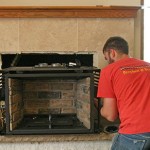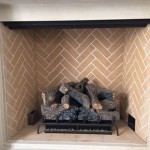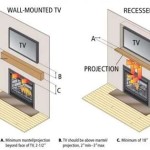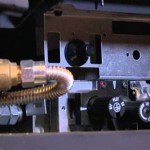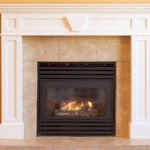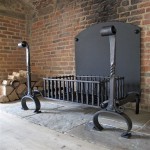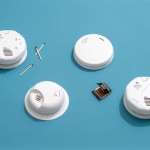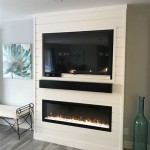Putting A Fireplace In Your Home: Considerations and Benefits
A fireplace serves as a focal point, radiating warmth and character throughout a home. Installing a fireplace represents a significant investment, demanding careful planning and consideration of various factors to ensure safety, efficiency, and aesthetic compatibility within the existing structure.
The initial step involves a thorough assessment of the home's structural integrity and the intended fireplace location. Factors such as load-bearing walls, existing ductwork, and proximity to flammable materials must be evaluated. Consulting with a structural engineer or qualified contractor is crucial to determine the feasibility of the project and to identify any potential structural modifications required. Ignoring these considerations could lead to costly repairs or, more seriously, compromise the safety of the building. Further, local building codes and regulations require adherence to specific guidelines concerning chimney construction, ventilation, and fire safety measures.
Selecting the appropriate type of fireplace is another critical decision. Options range from traditional wood-burning fireplaces to gas fireplaces and electric fireplaces, each offering distinct advantages and disadvantages. Wood-burning fireplaces offer the ambiance and characteristic crackling associated with natural fire, but they also necessitate a regular supply of wood, require more maintenance, and may contribute to air pollution. Gas fireplaces provide convenience and control, allowing for instant ignition and adjustable flame intensity. Electric fireplaces are the most convenient option, requiring only a power outlet and offering various aesthetic designs. This selection process should consider lifestyle, budget, and environmental impact.
Fuel Type and Environmental Impact
The choice of fuel significantly impacts the fireplace's environmental footprint. Wood-burning fireplaces, while aesthetically pleasing, can release particulate matter and other pollutants into the atmosphere. Modern wood-burning stoves and fireplaces, certified by relevant environmental agencies, incorporate technologies to reduce emissions, but they still require careful operation and maintenance to minimize their environmental impact. Gas fireplaces burn cleaner than wood, but they rely on fossil fuels. Selecting a gas fireplace with high energy-efficiency ratings can help reduce gas consumption and associated environmental impacts. Electric fireplaces produce no direct emissions, but their environmental impact depends on the source of electricity generation. If the electricity source is renewable, such as solar or wind, the environmental impact is minimal. Therefore, a holistic assessment of the environmental impact associated with each fuel type is necessary.
Ventilation is a crucial aspect of fireplace installation, regardless of the fuel type. Proper ventilation ensures the safe and efficient removal of combustion byproducts, such as smoke, carbon monoxide, and other gases, from the home. Wood-burning fireplaces require a functioning chimney that provides adequate draft to draw smoke upward and out of the house. Gas fireplaces also require venting, either through a conventional chimney or a direct-vent system that draws air from outside and exhausts combustion gases externally. Electric fireplaces do not require venting since they do not produce combustion byproducts. However, ensuring adequate airflow around the fireplace is still important to prevent overheating. Failure to provide adequate ventilation can lead to the buildup of harmful gases, posing a serious health risk to occupants.
Safety Measures and Building Codes
Adherence to safety regulations is paramount when installing a fireplace. Building codes mandate specific requirements for chimney construction, fire clearances, and the installation of safety devices, such as smoke detectors and carbon monoxide detectors. Fire clearances refer to the minimum distances required between the fireplace and combustible materials, such as walls, furniture, and draperies. These clearances are designed to prevent fires from igniting nearby materials. Regular inspection and maintenance of the fireplace and chimney are essential to ensure their continued safe operation. This includes cleaning the chimney to remove creosote buildup, inspecting the firebox for cracks or damage, and verifying the proper functioning of safety devices. Proper installation and adherence to safety guidelines minimize the risk of fire and carbon monoxide poisoning.
Insulation plays a critical role in fireplace efficiency and comfort. Proper insulation around the fireplace and chimney helps prevent heat loss, improving the overall energy efficiency of the home. Insulation also helps reduce the risk of condensation and moisture buildup within the chimney, which can lead to deterioration over time. The type and amount of insulation required depend on the fireplace type, the climate, and the construction of the home. Consult with a qualified insulation contractor to determine the appropriate insulation strategy for the specific fireplace installation. Effective insulation contributes to energy savings and protects the structural integrity of the fireplace and chimney.
Aesthetic Considerations and Design Integration
Integrating the fireplace seamlessly into the home's design is crucial for creating a harmonious and aesthetically pleasing environment. The fireplace should complement the existing architectural style and décor, whether it is traditional, contemporary, or modern. Factors such as the size, shape, and material of the fireplace surround, as well as the choice of mantel and hearth, contribute to its overall aesthetic impact. Consider the color scheme and textures of the surrounding walls and furnishings when selecting the fireplace design. Incorporating decorative elements, such as artwork, lighting, and accessories, can further enhance the fireplace's visual appeal. Thoughtful design integration ensures that the fireplace becomes a cohesive and attractive feature of the home.
The cost of installing a fireplace varies depending on factors such as the type of fireplace, the complexity of the installation, and the location. Wood-burning fireplaces typically require more extensive installation work due to the need for a chimney and fire clearances. Gas fireplaces may require gas line installation. Electric fireplaces are generally the least expensive to install since they only require a power outlet. In addition to the initial installation cost, consider ongoing expenses such as fuel costs, maintenance, and repairs. Properly budgeting for all anticipated costs ensures a smooth and financially sound fireplace installation project. Prior research and obtaining multiple quotes from qualified contractors can help ensure a fair market price is obtained.
Selecting a qualified and experienced contractor is essential for a successful fireplace installation. The contractor should possess the necessary licenses, insurance, and expertise to perform the work safely and effectively. Request references from previous clients and review their online reputation. Obtain a written contract that clearly outlines the scope of work, payment schedule, and warranty information. A reputable contractor will prioritize safety, adhere to building codes, and provide high-quality workmanship.
10 Reasons To Add A Gas Fireplace Your Home Heat Glo

Moving Hot Air How To Heat Your House Using Fireplace

Adding A Fireplace Is It Actually Possible Home Sweet Homes

How To Decorate Your Fireplace Safely Full Service Chimney

Places You Never Thought Of Putting Your Fireplace Vertical Chimney Care

Your Home Doesn T Have A Fireplace And You Want To Add One

Sprucing Up Your Home S Living Room With Fireplace By Expert

Does A Fireplace Add Re Value To Your Home Experts

Do I Need A Fireplace In My New Home Direct Fireplaces

Moving Hot Air How To Heat Your House Using Fireplace
Related Posts

